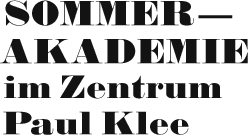Composition vs. Model: Art and Subjectivity in Generative Culture
Lecture by Bassam El Baroni (in english)
Monday, August 17, 2015, 19.30h
Bookshop Münstergass-Buchhandlung, Bern
“Composition, composition is the sole definition of art. Composition is aesthetic, and what is not composed is not a work of art.”
Thus wrote Deleuze and Guattari in the final chapter of their 1991 book ‘What is Philosophy?’ For Deleuze and Guattari the composition is the primal characteristic of all art whether visual, aural, written, or a fusion of these. The composition’s main function is to synthesise a ‘compound of sensations’, these compounds can be conceptual or formal and come in varieties or ‘monumental types’ that we can classify. This is basically why we can recognise that art is art while maintaining the idea that ‘anything can be art’. Even silence, blankness, or stillness, indicators sometimes used in art, are composed or are part of a composition. This simple fact complicates and places extra demands on recent calls for exiting contemporary art and making art more adequate for the computational present and future. Art’s historic and normative association with composition is rooted in the process through which it readapted its labour from the labour of making things to serve traditional artisanal, religious, and functional purposes to the a labour that emphasises the extraction of the percept (i.e. the mental concept that is established as a consequence of the process of perception) from perceptions of external cognizable objects. The labour associated with art became a labour of perceptual extraction and thus became firmly dependent on individuality, subjective narratives, and overemphasis on differences as sources for variation in percept extraction.
Unless we take research and its presentation in events to simply be art, composition remains the general and essential characteristic of what art is until today. But, while this may be the case, these compositions currently exist within the culture of the generative, the algorithmic etc. in which computational models are giving form to composition-equivalents. Some recent practices and theory – through their research on the concept of the generic – seem to be looking at the possibility of art as a generative model (or computational model), since the model is all that the composition is not, its power lies in setting up a dynamic infrastructure that is not dependent on the extraction of precepts from external objects but the equalisation and processing of everything inside a model for which everything is indiscriminately input and output data. The question emerges then, does not adequacy to generative culture entail the questioning and rethinking of composition as that which is art’s principle, and can there be any exit from contemporary art without exiting composition itself? Looking at practices that work with the conceptual, aesthetic and moral implications of the generative, the talk aims to identify the different ways in which the relation between the composition and the generative model has been approached in recent years.





